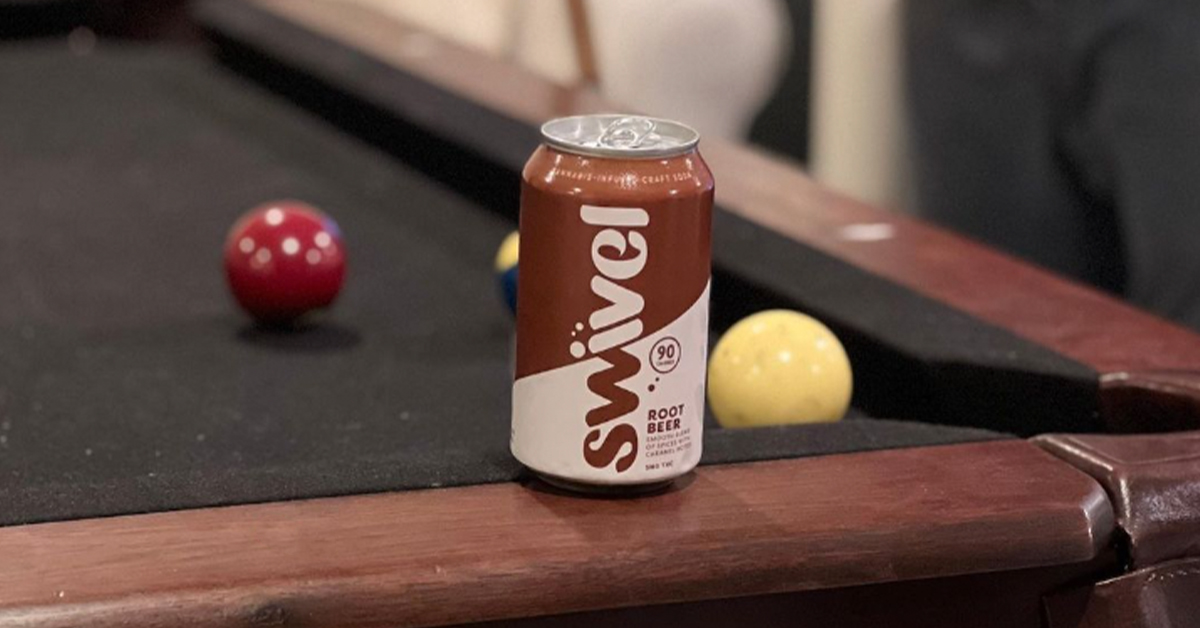The recently renewed 2018 Farm Bill’s provision allowing for legal sale of hemp-derived THC products is often described as a loophole; thanks to the eager work of beverage entrepreneurs, it’s looking more like a floodgate.
Through the pioneering work of beverage startups in Minnesota — where hemp-derived Delta-9 THC drinks are fully legal and sold alongside their alcoholic counterparts — cannabis drink makers around the country are feeling the wind at their backs as they attempt to crack their own respective state markets. For Mark Mahoney, founder of Massachusetts-based The Drinkable Company, the market is beginning to mature to the point where his extensive CPG expertise and experience can further press an advantage.
“It falls into our wheelhouse of what we’ve been doing for 35 years — we know how to make beverages, market them and then sell to distributors that actually pay you on a timely basis,” Mahoney said during a visit to BevNET’s offices outside Boston last week.
Mahoney is confident that the positive momentum coming out of Minnesota will eventually find its way to New England, where The Drinkable Company’s products remain restricted to adult-use dispensaries in its home state and in Maine, where it runs a canning facility in partnership with cannabis cultivator Sweet Dirt. That will change soon when the company switches from using cannabis to hemp-derived Delta-9 THC early next year and launches products in multiple states.
With raw material and testing costs significantly less expensive than cannabis, the pivot to hemp will make production easier but also unlock what Mahoney sees as one of his company’s greatest strengths: a low-dose portfolio with broad appeal and a range of use occasions. Boxes ticked include soda (Swivel), cold brew (Zenith, powered by ultra-strong Atomic Coffee), tea (Tiger), sparkling water (Ocean Breeze) and a non-alcoholic IPA (in collaboration with local glass purveyor Witch Dr), all clocking in at 5 mg THC per can. After producing over 180,000 cans in five months, the company is set to ramp up to over a million cans next year upon making the switch to hemp.
With the path for Delta-9 seemingly less encumbered, Mahoney is facing a question that many fellow THC drink makers will likely also grapple with at some point: why stick with dispensaries? The Drinkable Company has no plans to pull out of that channel, where it’s already sold, but also doesn’t have the desire to take it any further.
Rather, Mahoney envisions a future (“I don’t even give it two years,” he said) where regulated cannabis products are widely sold across channels and where states like Massachusetts can “feed” other states, assuming the eventual lifting of interstate commerce restrictions. Tipping those dominoes will reshape the market more in the image of regular CPG and reveal efficiencies that can make products more price accessible.
“There are hubs being built that can make these safely and quickly — 300 to 500 cans-per-minute lines versus 40 to 60 [cans-per-minute]. That’s how the price point is going to come down to that of a seltzer in the market.”
Note: This article originally appeared in the BevNET Daily Briefing on November 21.
